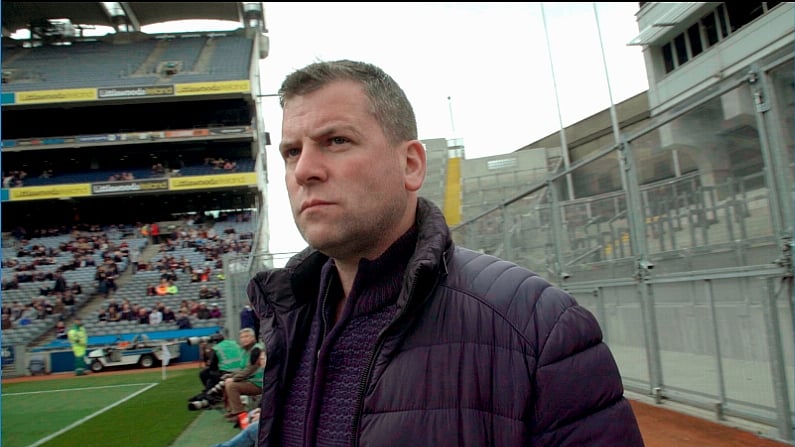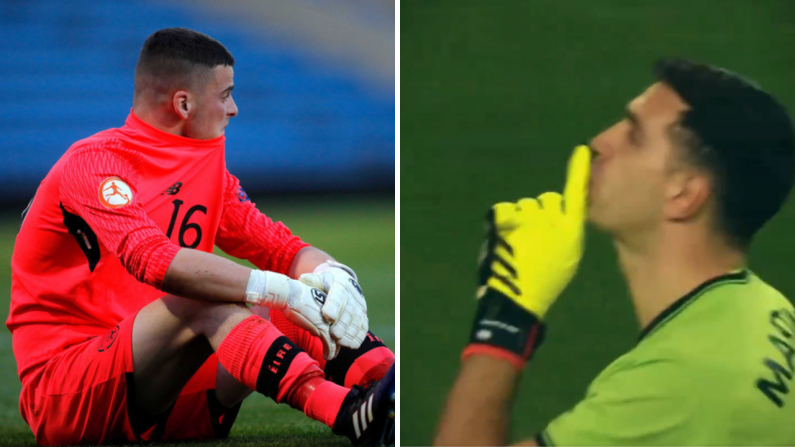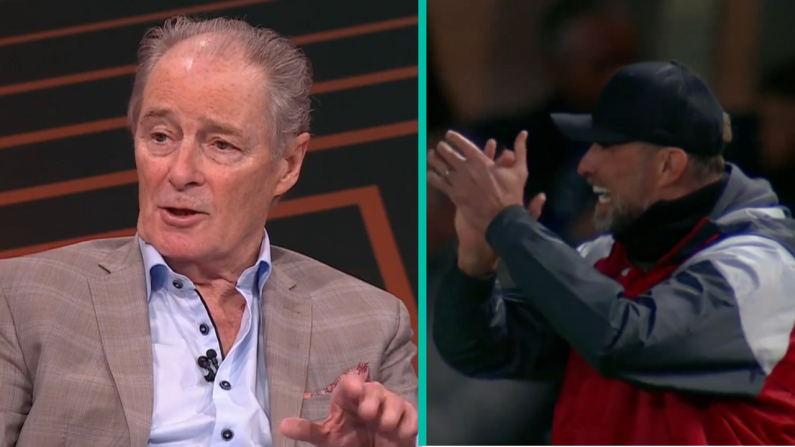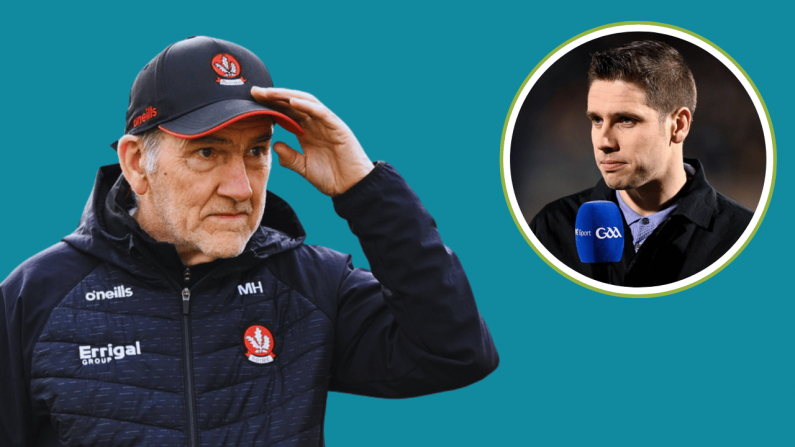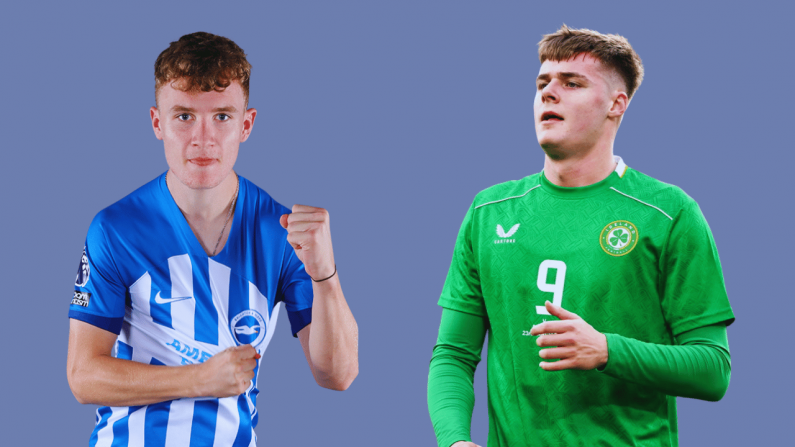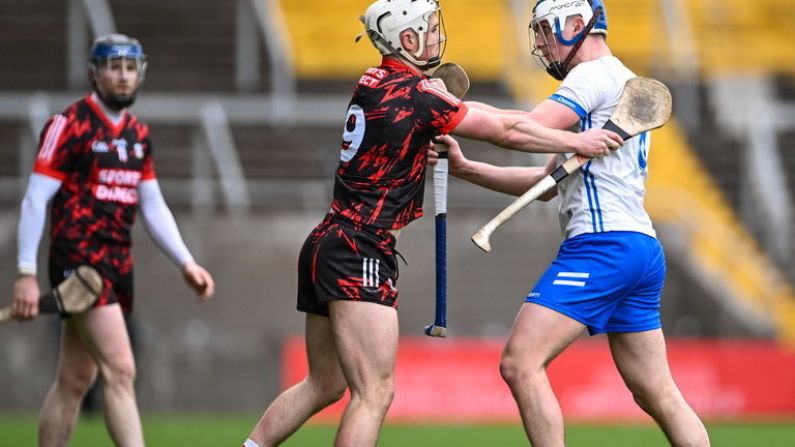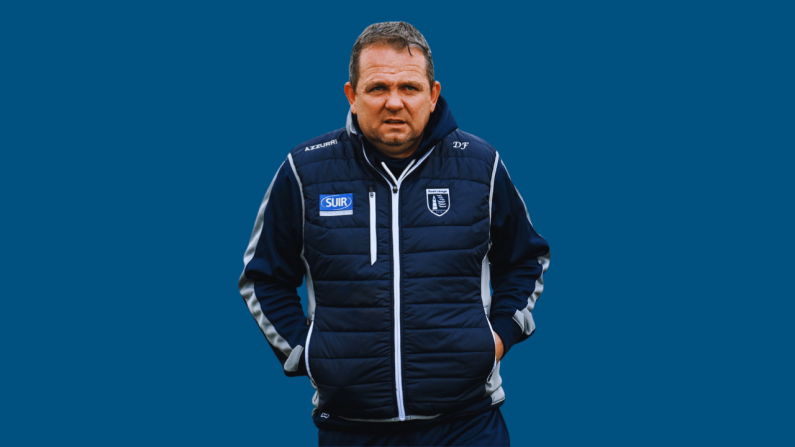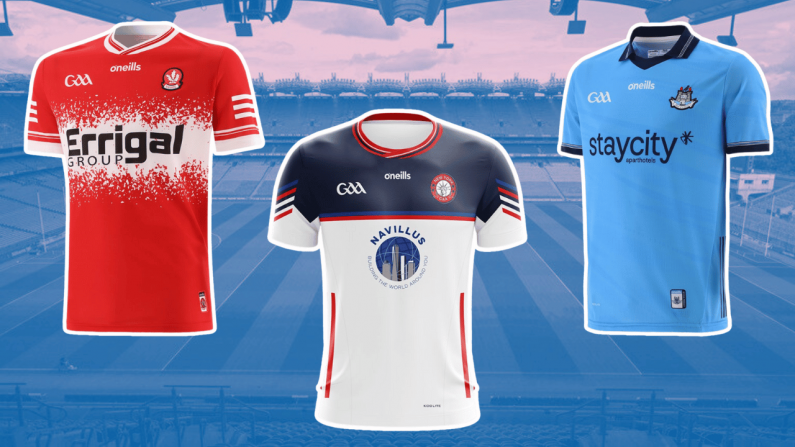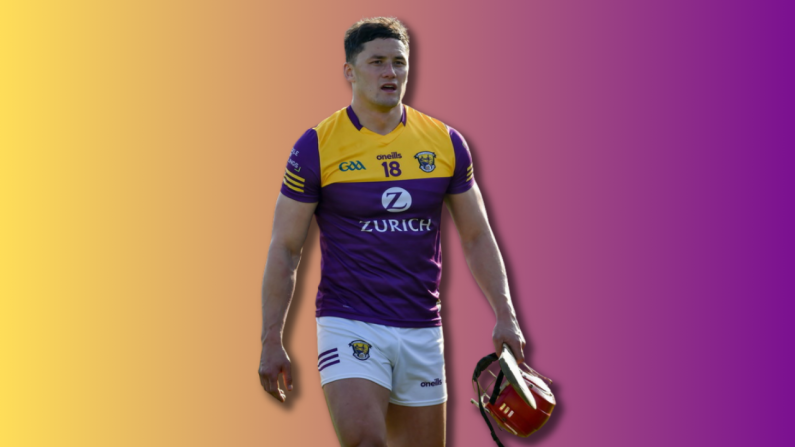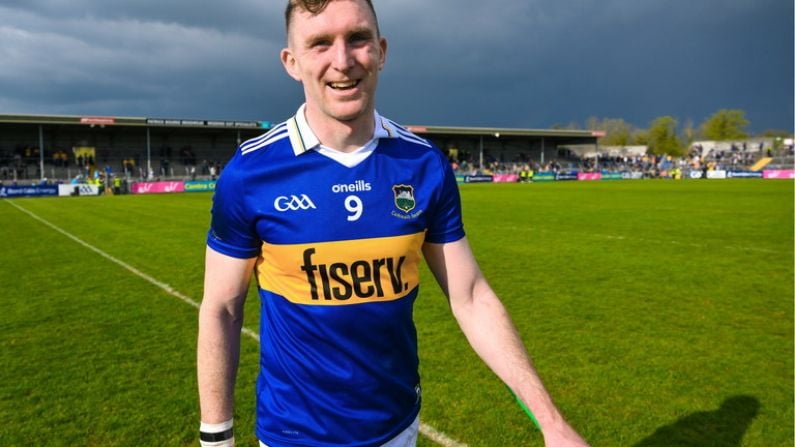At risk of caricaturing the progress made by the GAA in relation to sports science, this writer is going to regurgitate a quote he found in Eoghan Corry's God and the Referee. It is made by an unnamed Louth player in 1957:
I wouldn't know what to do with a hamstring injury; probably ate it.
Dara Ó'Cinnéide fronts a new RTE show tonight entitled GAA Nua(airing at 7.30pm), a four-part documentary looking at how the GAA has changed in relation to sports science, nutrition, and statistical analysis. It airs at 7.30pm.
Ó'Cinnéide tells Balls that the show was born from curiosity and seeks to detail the effect science and technology is having on the GAA, and what it may ultimately lead to.
He says that "rather than it being a science show with a bit of GAA, it's a GAA show with a bit if science in it", having gone behind the scenes at universities and at inter-county level, spending time with the Dublin ladies' footballers, the Wexford camogie team, the Waterford hurlers, along with the footballers from Kildare, Kerry, and Galway. The latter likely came from relationships formed from one of the most famous Irish sporting documentaries of the past: it is directed by Pat Comer, who furnished us all with the wonderful A Year Til' Sunday after the 1998 All-Ireland.
Having retired from Kerry duty in 2005, a lot has changed since Ó'Cinnéide took his leave, and he was most startled by the sheer volume of personal information players willingly give to their management teams.
It's almost like they are handing over every personal detail, about their health and general well-being, to inter-county management. I suppose that's a good thing, but there's almost a sense of ownership there. But you wake up in the morning, and you input all this data about how you are feeling physically, and your mind-set, into an app.
The fact that they are willing to spend so much time doing so... I won't say they are more self-absorbed, but they are more self-aware than we were.
In our day, you might come to training, and if you weren't feeling great, you might let that be known to management. But now they are doing this ahead of training. The management team are then able to look at this data, and extrapolate as to why that is the case. It is a professional approach to an amateur game, which was surprising to me.
They learned much more besides: Eanna Falvey, currently working as the head of the Lions medical team, explains why injuries occur, while Ó'Cinnéide takes an extra second to carefully pronounce "Spatiotemporal Dynamics" - an analysis of why players move as they do.
But what's the biggest revelation of all?
The biggest revelation is that good managers are still basing their approach on instincts. They have science and technology available to them, but the human being is still central to the thought process in preparation for matchday.
That's important: you can become blurred by science; you can give your gameplan over to science, which I don't thin many of the top teams are doing.
Eamonn Fitzmaurice, for example, looks at every piece of science and technology as a tool, and asks, 'Is this going to benefit my team, and if not, I'm not going to use it'.
That's a common approach across the board, among the good managers.
Given Ó'Cinnéide's past, the question naturally proved irresistible: would he have liked it this way in his playing days?
I come from an era where the game was a pastime. Look, we obsessed over it as any other Kerry footballer, or footballers from any other county would have done. And we believed we were training to as high a level of preparation as we could. But in hindsight, and this is no reflection on the people that trained us, we did train a little bit stupid at times.
It was always, bigger, better, faster...more. With the emphasis on more. So if you were feeling tired, it was because you weren't fit, so you would run some more. Whereas now, if you were feeling tired, there's a very logical, rational, scientific explanation for it. So, instead, let's do less of this, and more of that.
That's a good thing. We might have trained more often, for longer, and harder, and we didn't get out all we can. I would have liked to have some of those tools to make me train smarter for the position I am playing.
The way Eamonn Fitzmaurice looks at it, he would tell me, 'no, if you were 22 now, you'd enjoy it a lot more. You'd be fitter, smarter, and you'd get more out of yourself'.
GAA Nua airs over the next four Monday evenings on RTE One, at 7.30pm.
See Also: It's Time We Pay Attention To Longford's Magnificent Record In The Qualifiers

